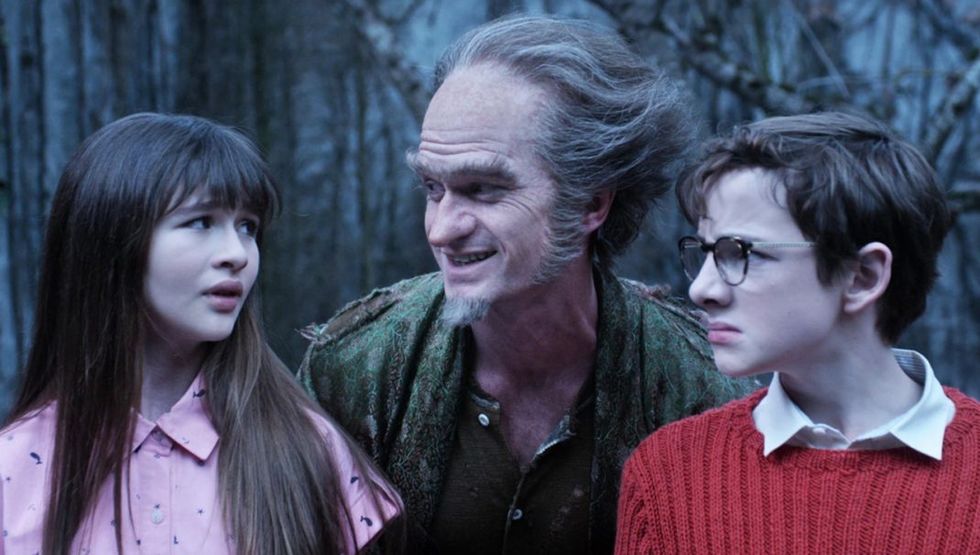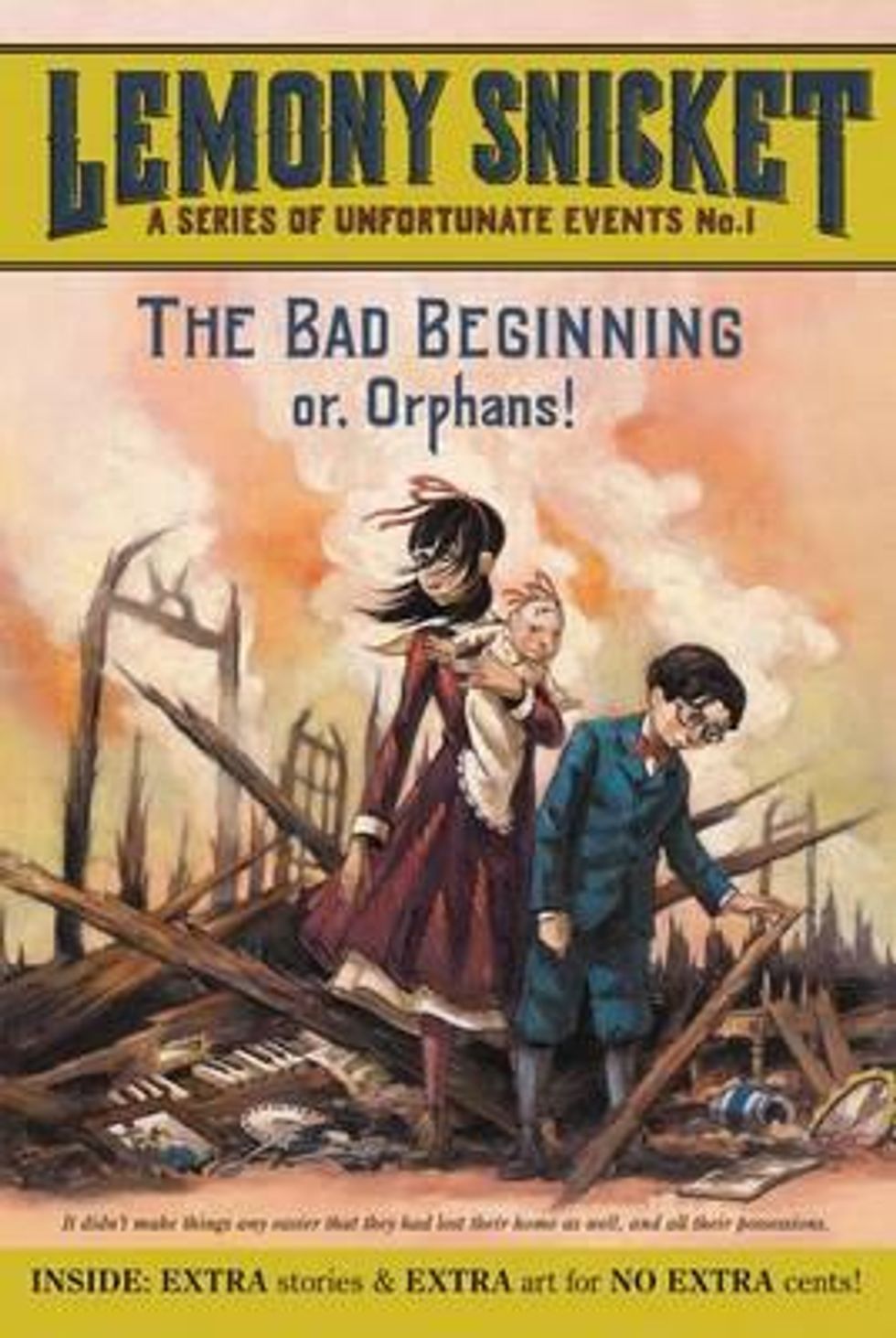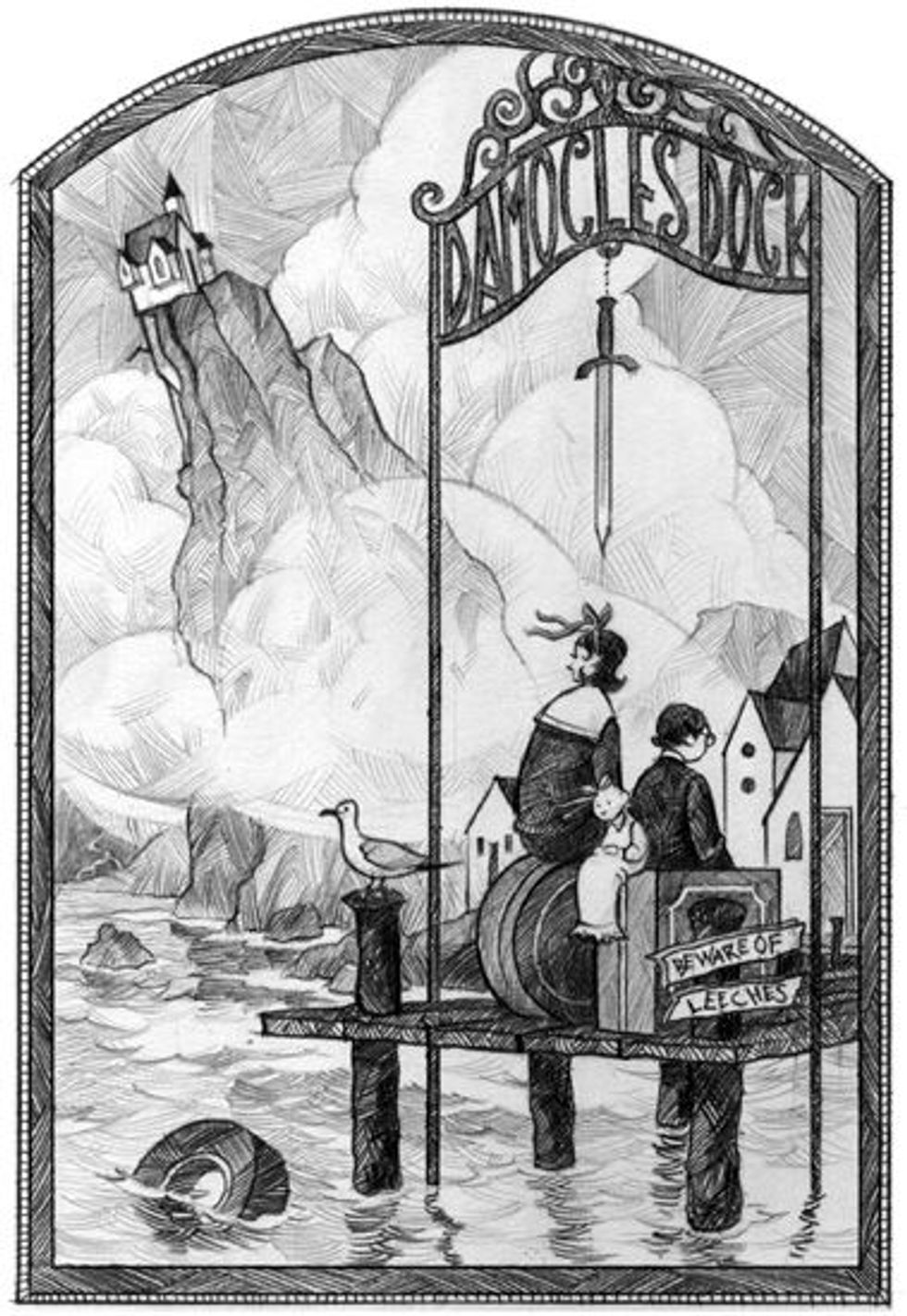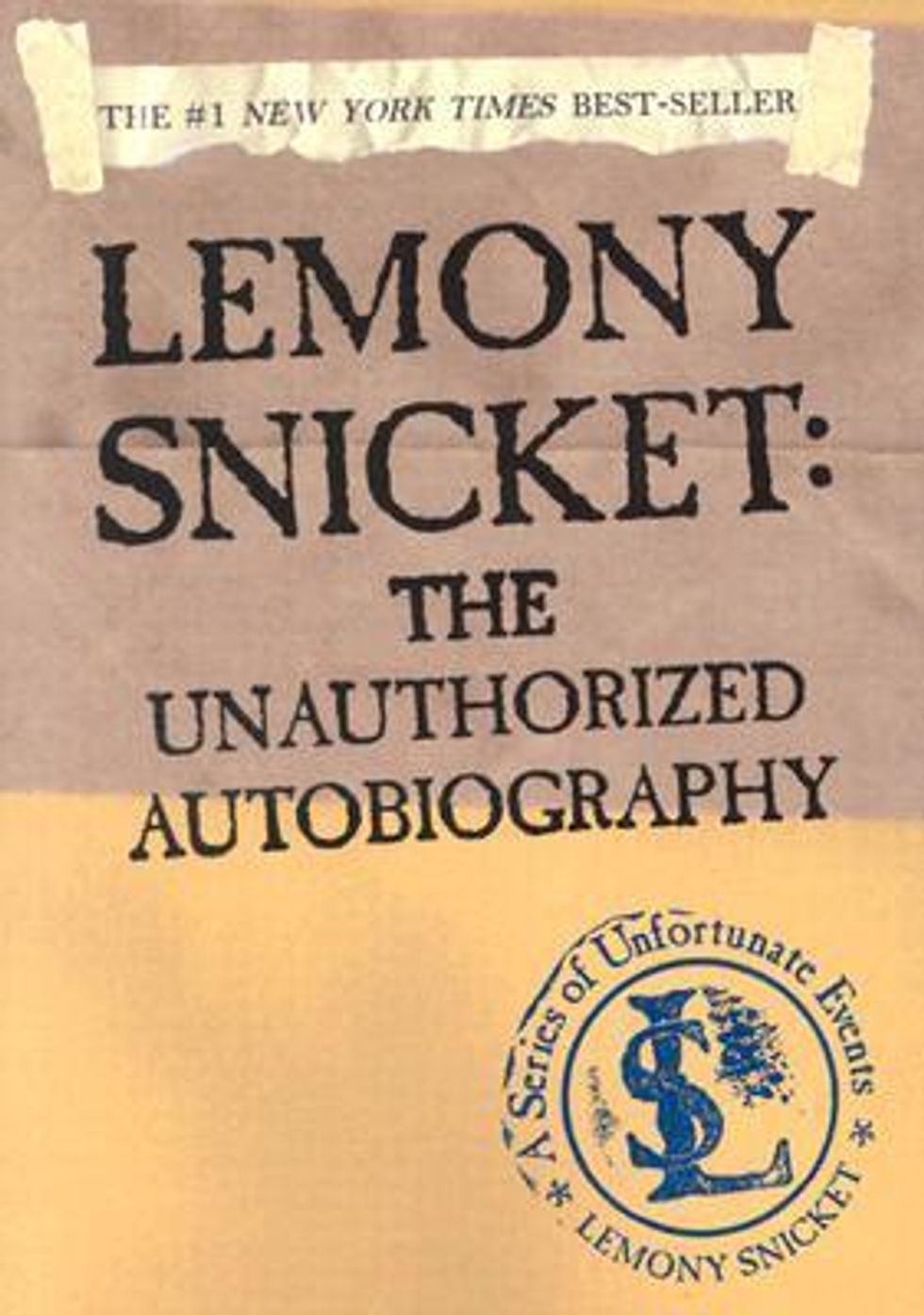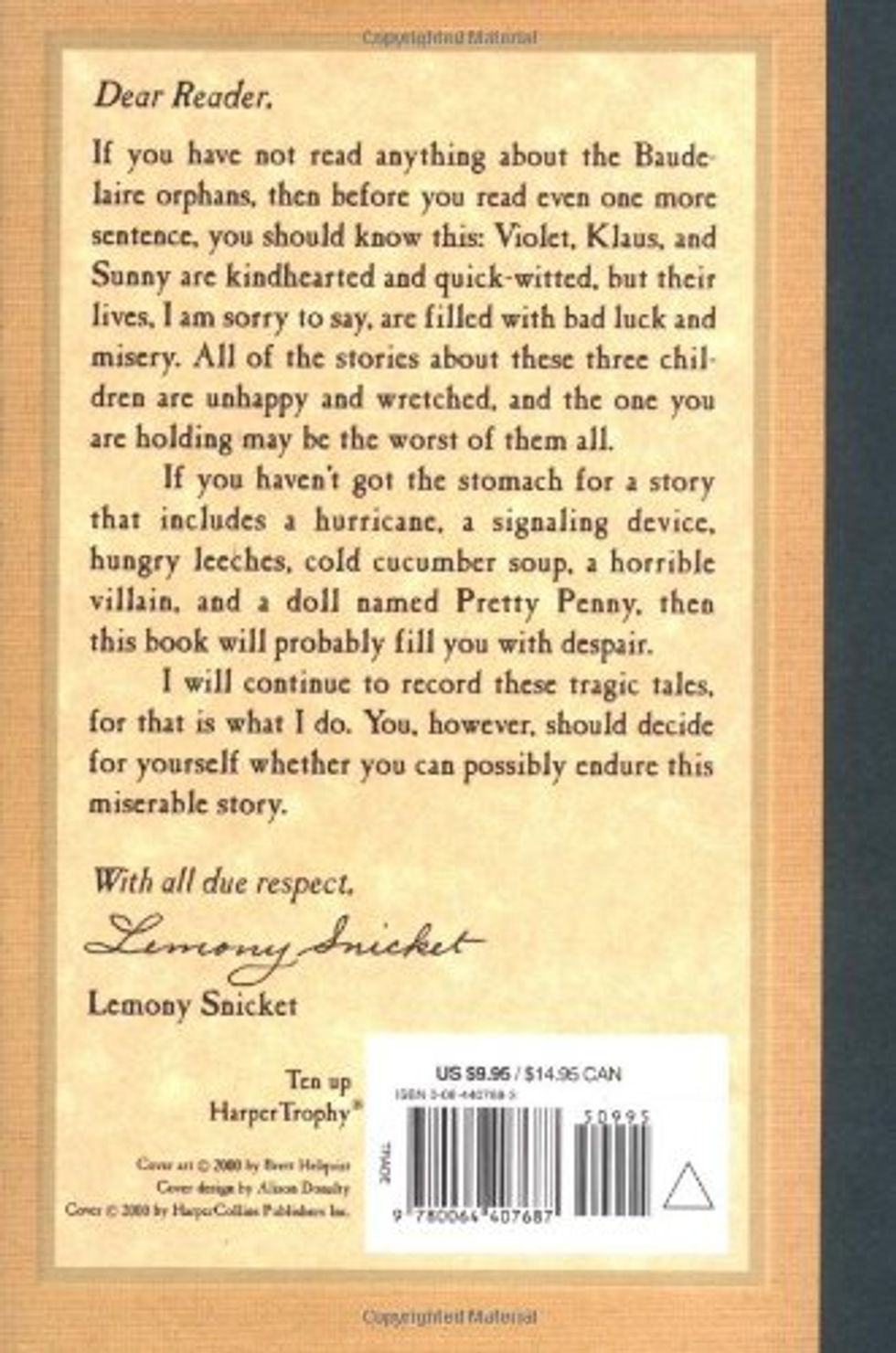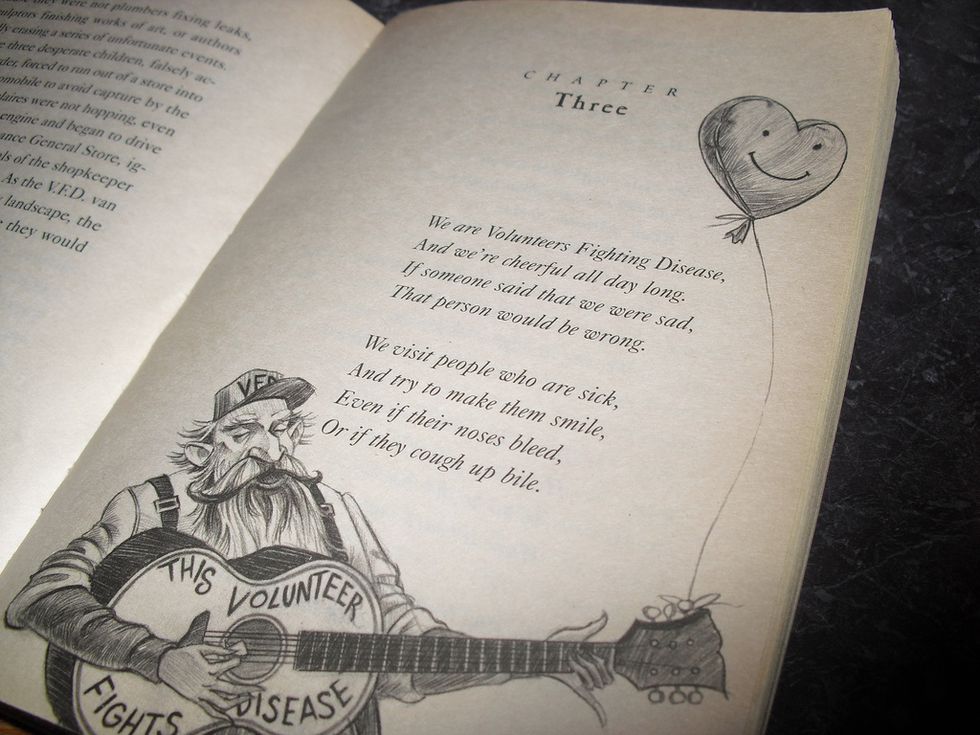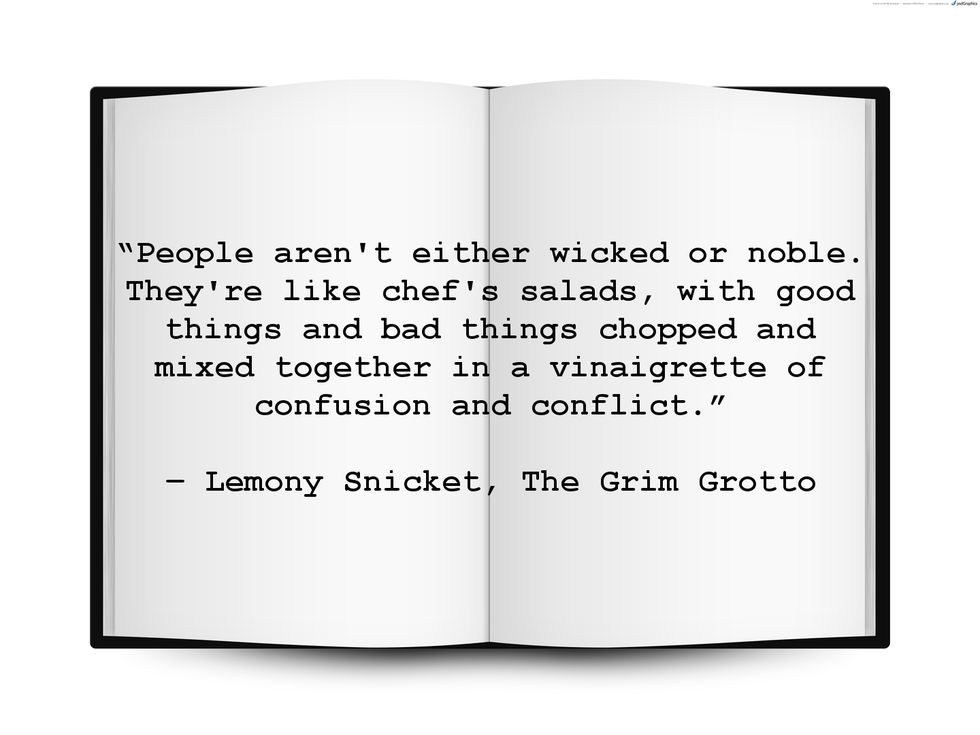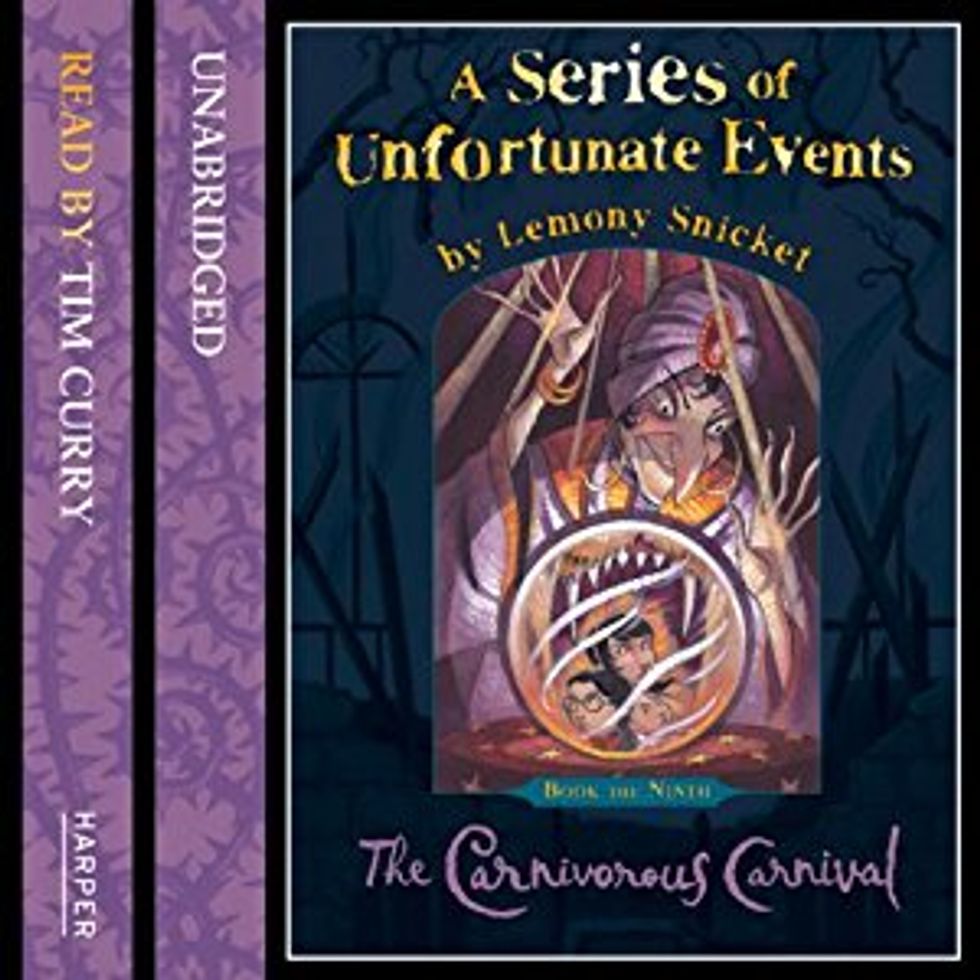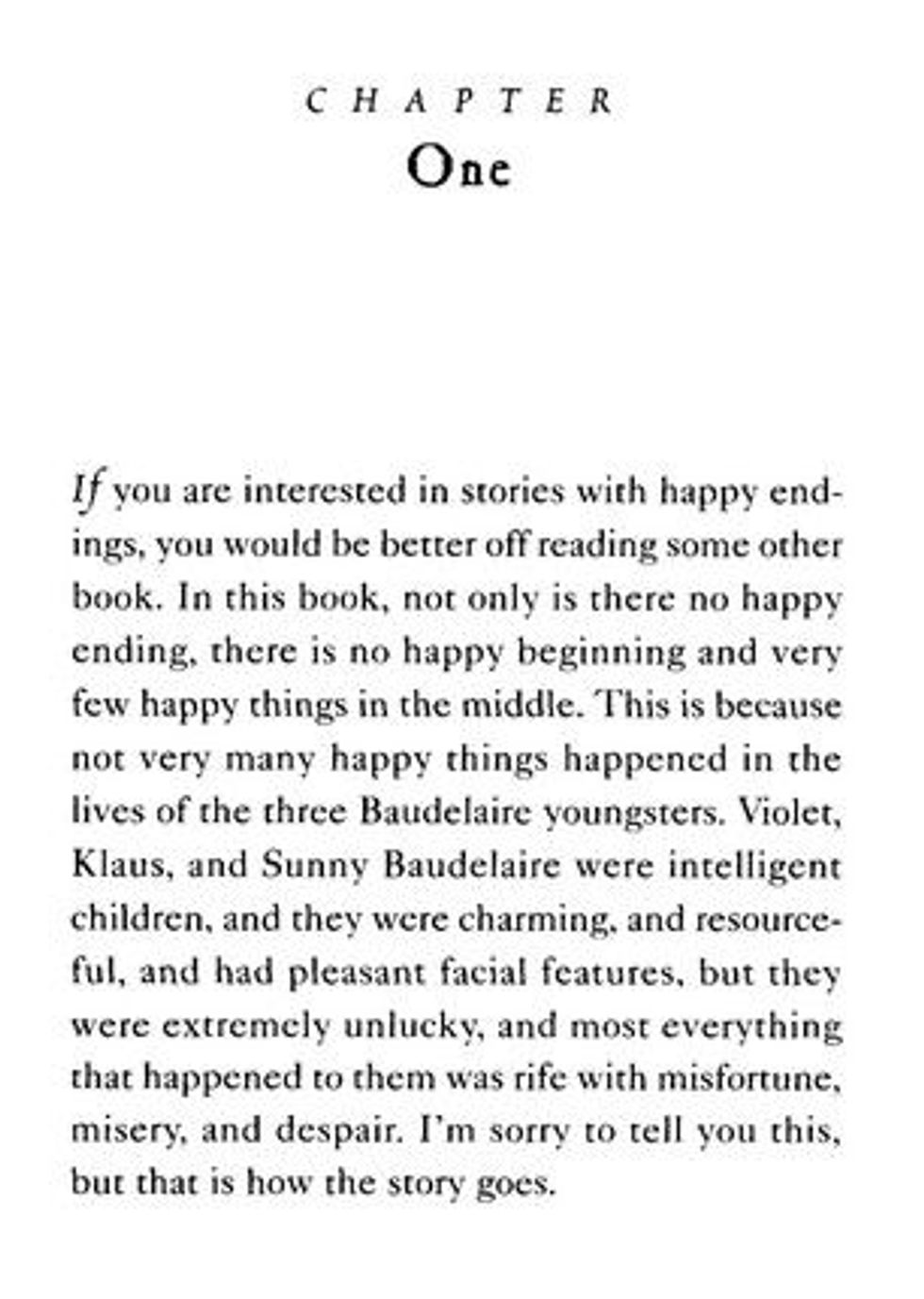Dear reader,
I can say without a shadow of a doubt that "A Series of Unfortunate Events" is the most beloved series of my childhood.
And this is coming from a die-hard "Harry Potter" fanatic.
There are plenty of reasons why this depressingly-named series holds such a special place in my heart, and I think we've all had a glimpse of some of these reasons by bingeing the Netflix adaptation of the same name.
The show's second season just premiered on March 30 and has been receiving an abundance of praise from both critics and viewers since its debut last year. Its quirky oddities and theatrical style has earned it a place in many peoples' Netflix to-watch lists.
We can't resist finding out what scheme the villainous and bumbling Count Olaf (played perfectly by adorable and hysterical Neil Patrick Harris) thinks of next in his quest to steal the Baudelaire orphans' fortune.
It's clear that the show is loved by many, but those who haven't read the books are missing out on a fortune (hehe, get it?) of literary brilliance on the part of Lemony Snicket, A.K.A. Daniel Handler.
Despite their "children's series" label, these books provide something of value to those of all ages. Unlike most books for younger audiences, they definitely handle very serious, dark subject matter such as death, loss, wickedness and sacrifice with a surprisingly humorous flair.
Here are just some of the marvelous quirks delivered by Mr. Snicket that should prompt you to pick up these reads after you've completed your Netflix-binge.
1. The dark tone
Any story that begins with three children learning their parents have perished in a fire while standing on a desolate beach on a gloomy afternoon, from a man with uncontrollable coughing fits and a misunderstanding of basic social cues, is definitely dark.
Snicket's dark tone is what I love most about this series. It sets an expectation that children (both the characters within its pages and the children reading it) can handle knowing the harsh realities of the world without having to be sheltered from them.
Death is a natural part of life, and this series is not afraid to introduce it at the forefront of its story. The Baudelaire children become orphans in an instant and spend the rest of the series trying to navigate their way through a cruel world filled with rude, selfish and wicked people trying to steal everything their parents left for them. Not many children's series present such dark humor without sugarcoating, but Mr. Snicket does none of that.
2. The free vocabulary lessons
This series practically has a built-in dictionary within its pages. Any time there is a word that youngsters wouldn't necessarily know, Snicket takes it upon himself to humorously define it.
An often repeated phrase throughout the series is "a word which here means" is followed by a definition of the word preceding it. In addition to words, Snicket also explains common phrases or colloquial expressions, such as the old adage "It takes a village to raise a child" or feeling "in the dark" about a situation.
No matter our age, many of us could definitely use these convenient vocab lessons. Even if you're a master of words, these little asides by the narrator definitely coax a chuckle.
3. The unmatched humor
While the show is definitely funny, the lines are often delivered in a rushed, flat tone. Unless you are listening intently or watching with subtitles, it's easy to miss these gems of sarcasm and absurdity.
While reading, you will often be so tickled by some of Snicket's quotes that you will want to read the same passage several times. His unabashed display of smart, intellectual humor definitely sets this series apart from others.
4. The beautiful illustrations
The beautiful illustrations in this series seem to have been born out of a Tim Burton film.
Illustrator Brett Helquist perfectly captures the gloomy, miserable atmosphere of each novel and often hides small clues of what's to come within his images. They definitely give the reader a sense of ominous foreboding and provide a valuable addition to the Baudelaire story.
5. The tie-in material
One of the best parts of this series is the extra materials that go along with it.
There are several companion books published along with this series that provide contextual clues in the form of letters, newspaper articles, manuscripts and case files. These include "Lemony Snicket: The Unauthorized Autobiography" and "The Beatrice Letters."
The sheer complexity of these tie-in materials really accentuates Snicket's masterful imagination and skill in crafting this fictional world. With every page, new secrets are disclosed concerning the books' most deliberated mysteries, such as V.F.D. and the sugar bowl. It's super fun (and rewarding) to examine these materials and try to connect the dots on your own in concurrence with reading the series.
6. Lemony Snicket's letters
At the end of each book, Snicket addresses a letter to his editor, Daniel Handler (yes, Daniel Handler plays the role of editor to his own books' fictional narrator). This letter usually provides a clue as to where the Baudelaire orphans will end up in the proceeding novel, as well as a plea from Lemony to keep this information safe so that the Baudelaire story will "finally be told to the general public."
Snicket also addresses a letter to the readers on the back of each book in the series, warning them of the troubling woes within its pages and advising them not to read any further if they don't want to read about the Baudelaire's misfortune.
7. The slow-burning mystery of V.F.D.
V.F.D. is definitely a huge part of the show, but to my disappointment, it is too easily and hastily explained in its short episodes. The volunteers are not as present within the novels as they are in the show, and therefore there is no one to really explain the mystery of the organization to the readers outright.
The books slowly yet perfectly unravel the secrets behind V.F.D. and its members. With each book in the series, the reader attains more and more information in short snippets scattered here and there. This creates a slow-burning mystery that builds into an exhilarating climax by the end of the series. I just feel that the show falls flat in this regard, which is a shame since the V.F.D. mystery is what I love most about this universe.
8. The lack of cheesy musical numbers
One of the few things I personally dislike most about the show is the musical numbers. They seem like a performance in a cheap vaudeville show: awkward, over-rehearsed and not very catchy.
While there are some songs in Snicket's novels, they read more like poetry than song. In some cases, they can even be skipped over if the reader wishes. Admittedly, the Volunteers Fighting Disease song from "The Hostile Hospital" is rather funny and highlights just how absurd the volunteers' ideologies really are.
9. The questioning of morality
Good versus evil is a theme inherit within the Baudelaire storyline. At first, the orphans find themselves struggling against a steady current of evil and greed in search of some good in the world: a safe place to escape from Count Olaf, a loving guardian and a library full of interesting books.
As the books progress, however, the children find themselves having to make some questionable and morally grey choices in the face of wickedness, such as whether to steal or lie in order to escape Olaf's clutches.
More and more, the Baudelaire's find themselves in situations where their morals are compromised. Sometimes, their good intentions fall by the wayside, a phrase which here means "have to be abandoned in order to ensure the greater good."
Snicket often presents this as a moral dilemma: does the Baudelaire's willingness to perform wicked deeds for the sake of survival make them evil people? Good people sometimes do bad things, but does that make them villainous? Can the same thing be asked of Count Olaf?
Such a theme rarely presents itself within children's books, and I think the question of morality is a valuable thing for those of any age to contemplate.
10. Tim Curry's dazzling narration of the audiobooks
We all know that an audiobook narrator needs to be chosen with the utmost care in order to keep the attention of its listeners for ten or so hours. His or her voice should have a tone that fits with the story's atmosphere and be able to perform distinct yet suitable voices for each character.
Well, this series doesn't disappoint. It's almost as if someone asked the heavens "how can we make this series even better?" and then a mysterious from above whispered, "make Tim Curry narrate them aloud."
Curry's handling of this material is golden. He has a control over the language and performs the characters' voices perfection. His performance of Sunny is my favorite because he unabashedly articulates every one of her unintelligible shrieks and coos. And he also does a pretty mean Count Olaf.
11. Daniel Handler's use of metafiction
"A Series of Unfortunate Events" is a perfect example of a framed narrative or a story within a story. The series frequently acknowledges that it exists as an account of the Baudelaire's lives and that it is told by a character who is deeply involved in their story.
Daniel Handler's creation of Lemony Snicket not only as the "writer" of the series but as his own character within the story itself is a genius construction of a very unreliable yet self-aware narrator. Snicket constantly warns readers of the miserable misfortune that lies within his pages, entirely demolishing the concept of the fourth wall.
Furthermore, Snicket weaves his own woes into the Baudelaire story and frequently brings up the demise of his lover, the mysterious Beatrice. He acknowledges that these two stories are connected, but does not admit his own role in that connection. He also often goes off on tangents, recounts personal anecdotes and occasionally weeps in sorrow for the Baudelaire's.
Suffice it to say, Lemony Snicket is the most unique narrator of any book I've ever read. And while Netflix's version does a good job of portraying this intriguing character, nothing beats the original Lemony Snicket.


